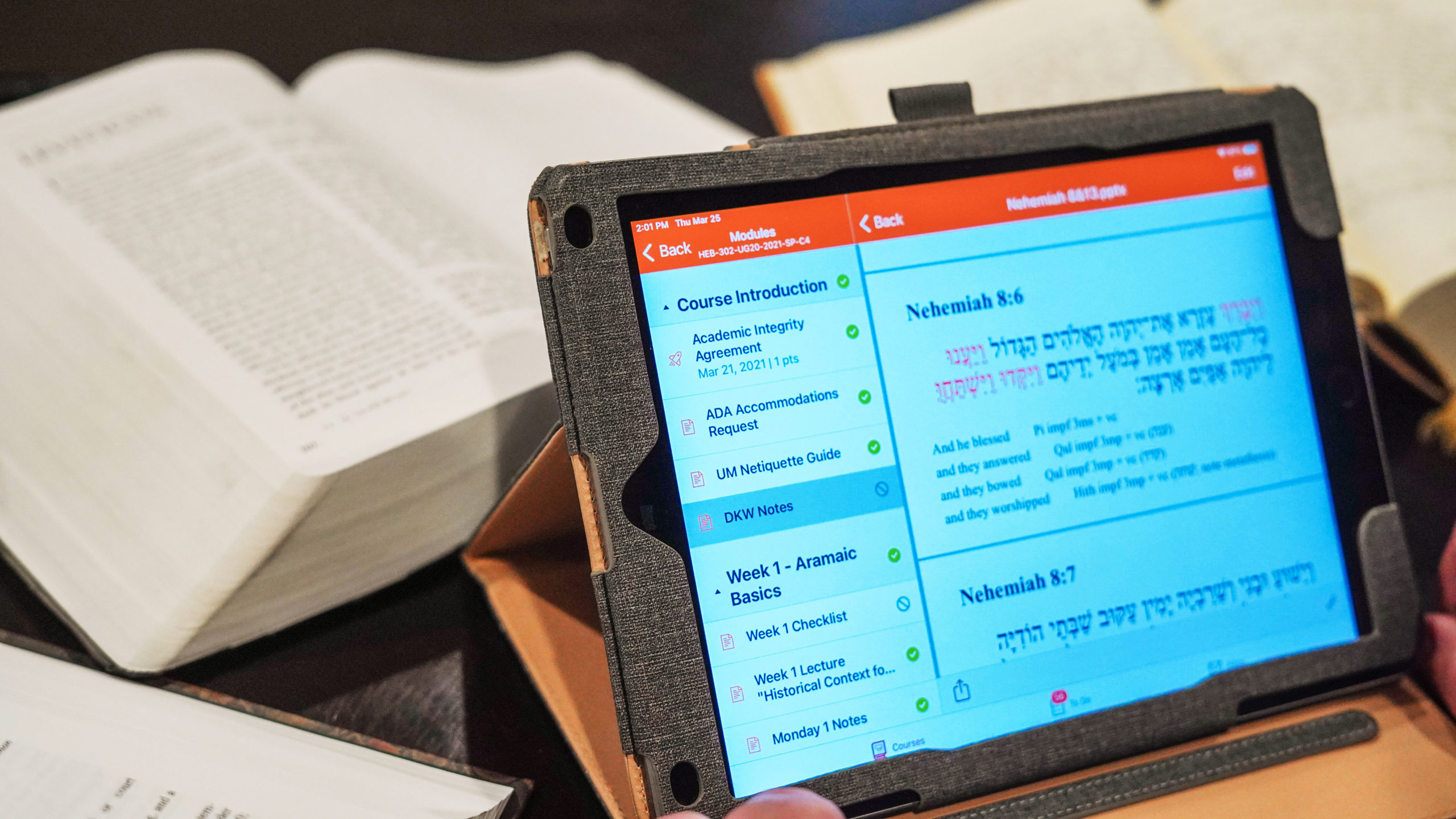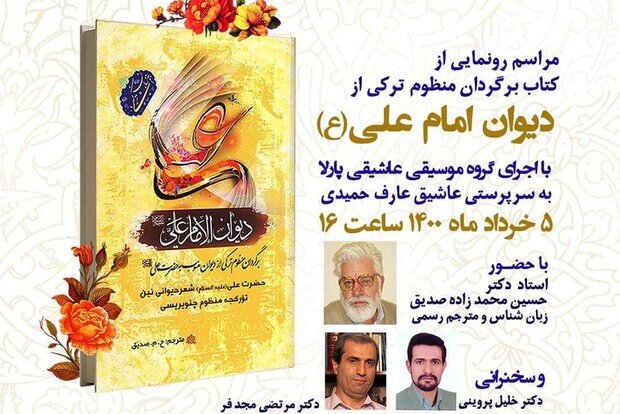
Professor Doug Wilson has had many students complete his classes at the University of Mobile and become pastors, worship leaders, chaplains, missionaries and professionals who use their work to further the gospel.
He’s grateful and humbled when he thinks of every single one.
But Wilson’s got a specific prayer he has prayed in recent years — that God would call students in his classes to go and translate the Bible for people groups who don’t have the word of God in their language.
He knows at least one student who has gone on to do that, and he’s praying for more.
But he’s not stopping there — he’s putting Bible translation in front of his students all the time.
“I’ve been introducing students to biblical Hebrew and teaching Old Testament at UM since 2003, and I recently developed courses about Bible translation history and theory,” said Wilson, who serves as dean of UM’s Center for Christian Calling.
Wilson recently was invited to serve on the Old Testament translation committee for the New Tyndale Version, so he’ll be showing them what the process looks like in real time as he works on a project himself.
Wilson will translate three books and serve as a sectional editor for a portion of the Old Testament.
500th anniversary
The idea behind the NTV is to honor the process that William Tyndale used to print the first full Bible in English in 1526.
Tyndale translated his version into English from the original Greek and Hebrew, which is what the NTV team will do too. But they will also have access to manuscripts that Tyndale did not.
“We honor Tyndale’s legacy while utilizing documents which were unknown 500 years ago,” he said.
“These discoveries include texts from Codex Sinaiticus (1844), Codex Leningradensis (1863), the Cairo Geniza (1896) and the Dead Sea Scrolls (1947), among others.”
The publication of the multiyear project will coincide with the 500th anniversary of the Tyndale Bible.
“William Tyndale joined men like Jan Hus and Martin Luther who risked their lives to translate the Bible into the language of their people so that it could be read in their mother tongue, their heart language,” Wilson said, noting that Tyndale was martyred 10 years later for his work.
Wilson’s role in the NTV will be to translate his assigned portions “word by word, verse by verse and chapter by chapter.”
Textual history
“We must be aware of textual history, interpretive issues and translational challenges in the Hebrew and Aramaic sections within our assigned books,” said Wilson, who has taught biblical languages, biblical studies and intercultural coursework for the past 25 years.
He studied Old Testament languages and literature, including several Ancient Near East languages, with longtime NIV Bible translator Larry Walker.
“Dr. Walker taught me translation theory and trained me how to translate Hebrew and related Semitic languages,” Wilson said. “My work on this project carries on the legacy of Dr. Walker in his service to the Lord as a Bible translator.”
Honoring mentors
A colleague who also studied under Walker asked Wilson to be a part of the NTV translation team.
In addition to honoring Tyndale, Wilson said his work on the team also honors his dad, who taught history for 25 years. And it builds on his own mission of exposing students to Bible translation and helping them catch a vision for that type of ministry.
“My prayer is that our experience and training on this project will be a spark to ignite the passion of other UM students to take up the mantle of Bible translation, particularly into languages in which there is no previous translation,” he said.
Wilson asked for prayer for those serving on the NTV translation team. He also asked for prayer “for the Lord of the harvest to send forth laborers to unreached and unengaged people groups … for men and women who will dedicate their lives to translate the Bible into the languages of those people.”





